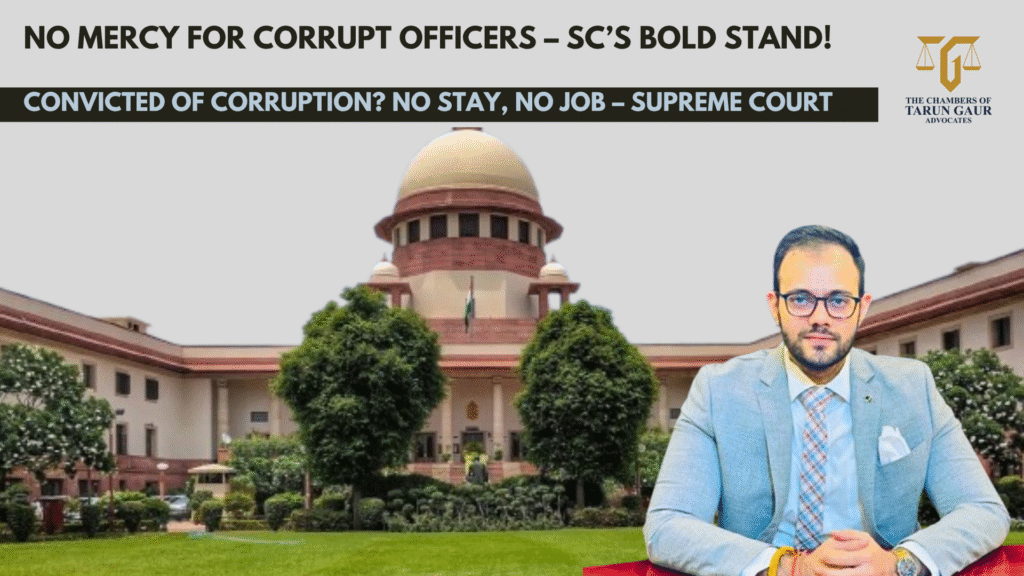In a significant ruling that strengthens the fight against corruption, the Supreme Court of India has recently declined to stay the conviction of a government official convicted under the Prevention of Corruption Act, 1988. The apex court underscored that such convictions, especially involving public servants, must not be casually interfered with, and reiterated the need for judicial restraint in staying convictions in corruption cases.
The case arose after a public servant—convicted under Sections 7, 12, 13(1)(d), and 13(2) of the Prevention of Corruption Act—approached the Supreme Court. He had been sentenced to two years of rigorous imprisonment and fined ₹3,000 for one offence, and an additional three years of imprisonment and a fine of ₹5,000 for another. While the Gujarat High Court had suspended his sentence and granted him bail, it explicitly refused to stay the conviction itself. Dissatisfied, the petitioner moved the Supreme Court, seeking a complete stay on his conviction.
A bench comprising Justice Sandeep Mehta and Justice Prasanna B. Varale refused to intervene, affirming the High Court’s decision. The Court referred to earlier landmark judgments—K.C. Sareen v. CBI, Chandigarh (2001) and CBI v. M.N. Sharma (2008)—which had clearly laid down that courts should avoid staying convictions of public servants found guilty of corruption. The bench emphasized that it saw “no justifiable reason” to deviate from this well-established legal position.
“The impugned order does not suffer from any infirmity warranting interference,” the Court observed, dismissing the plea as meritless.
A Strong Signal Against Corruption
This ruling sends a clear message: public servants convicted of corruption will not receive judicial leniency merely by virtue of their official status. It reinforces the principle that accountability must be maintained, and that convictions—especially those resulting from a trial conducted by a competent special court—must stand firm unless overturned on appeal through proper legal channels.
My Take as a Legal Professional
I firmly applaud the principled stance taken by the Supreme Court. Trials under special legislations like the Prevention of Corruption Act are conducted by specially designated courts presided over by experienced Sessions Judges. These courts are well-equipped to assess evidence and reach findings of fact. Once a conviction is recorded after such a trial, it should not be diluted or stayed lightly.
Moreover, when the convicted individuals are public servants—entrusted with the duty to serve the public—the gravity of their misconduct is even greater. Corruption among government officials has long been a scourge on our system, harming ordinary citizens who are forced to navigate red tape and bribery to access even basic services.
In my opinion, a convicted public servant should not be allowed to resume official duties while their appeal is pending. They have not only failed the public but have also breached the trust that comes with their position. Their conviction should remain in full effect, serving as both punishment and deterrent. Only then will other public officials take notice—and perhaps, rethink before indulging in corruption.
Let this be a reminder that justice, when delivered firmly and consistently, becomes a powerful tool for societal change.
Case no. – Special Leave Petition (Criminal) Diary No. 4666/2025
Case Title – Raghunath Bansropan Pandey v. State of Gujarat

